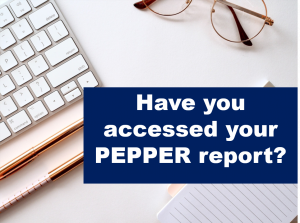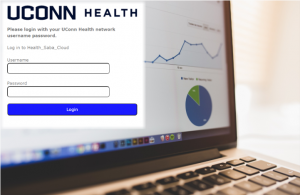Healthcare providers are encouraged as a best practice to routinely evaluate the OIG Work Plan. However, you might be wondering – What is the OIG? What is their Work Plan? Why is it important to evaluate the Work Plan?
Who are the OIG?
The Office of Inspector General (OIG) provides independent oversight of the federal agencies under the purview of the U.S. Department of Health and Human Services (HHS). UConn Health receives payments from, and is regulated by, several such agencies including the Centers for Medicare and Medicaid Services (CMS), the Centers for Disease Control (CDC) and the Health Resources and Services Administration (HRSA).
The OIG continuously audits healthcare providers who receive funding from these and other HHS agencies to assure that providers comply with federal statutory and regulatory requirements.
What is the OIG Work Plan?
The OIG issues a Work Plan which identifies areas that the OIG will audit. Areas are selected for audit when mandated by statute or when the OIG determines there is an elevated risk to the financial integrity of a HHS program (such as Medicare).
The Work Plan is updated monthly as new risk areas are identified, audit scopes are revised or audits are completed.
Below are two examples of audits that are currently listed in the Work Plan:
“Telehealth Expansion During the COVID-19 Emergency – OIG will determine whether providers complied with Federal and State requirements for telehealth services under the national emergency declaration.”
“Two Midnight Rule-OIG will review short stay inpatient claims to determine whether they were incorrectly billed as inpatient and should have been billed as outpatient or observation.”
Why is it important for UConn Health to evaluate the Work Plan?
Routinely evaluating the OIG Work Plan helps UConn Health:
- Reduce institutional risk:
Routinely evaluating the Work Plan allows UConn Health to assess whether its operations comply with legal requirements, and identify and implement any necessary corrective measures.
- Avoid sanctions:
The OIG may impose sanctions on healthcare providers found to be out of compliance through an OIG audit. Possible sanctions include financial penalties, civil and/or criminal prosecution, and/or exclusion from participating in federal healthcare programs such as Medicare. In addition, identified overpayments must be refunded to the government.
- Demonstrate organizational commitment to compliance:
In determining the severity of sanctions to impose, the OIG may consider the level of organizational commitment to maintaining an effective compliance program. Regular review and assessment of the Work Plan by UConn Health evidences our organization’s commitment to maintaining compliance.
- Establish a proactive rather than a reactive approach:
Knowing which areas the OIG considers high risk, assists UConn Health in deciding where to allocate attention and resources before an audit occurs.
Check out these FY 2020 OIG statistics…
| Statistic |
Semiannual Reporting Period
(10/1/2020-3/31/2021) |
| Audit Reports Issued |
75 |
| Evaluations Issued |
20 |
| Expected Audit Recoveries |
$566.46 million |
| Potential Savings |
$919.97 million |
| New Audit and Evaluation Recommendations |
228 |
| Recommendations Implemented by HHS OpDivs |
228 |
| Expected Investigative Recoveries |
1.37 billion |
| Criminal Actions |
221 |
| Civil Actions |
272 |
| Exclusions |
1,036 |
At UConn Health, operational owners and the Office of Health Care Compliance and Privacy collaborate to review and evaluate the OIG Work Plan on a quarterly basis. It is a significant undertaking, but one well worth the effort.
 PEPPER stands for the Program for Evaluating Payment Patterns Electronic Report. PEPPER reports summarize Medicare claims data for a provider in “target areas” that may be at risk for improper Medicare payments. PEPPER compares a provider’s Medicare claims data statistics with combined Medicare data for the nation, jurisdiction, and the state. PEPPER is an educational tool that is intended to help providers assess their risk for improper Medicare payments. While PEPPER reports started as a report pushed out to providers, it is now the responsibility of the organization to pull the report, which is available on
PEPPER stands for the Program for Evaluating Payment Patterns Electronic Report. PEPPER reports summarize Medicare claims data for a provider in “target areas” that may be at risk for improper Medicare payments. PEPPER compares a provider’s Medicare claims data statistics with combined Medicare data for the nation, jurisdiction, and the state. PEPPER is an educational tool that is intended to help providers assess their risk for improper Medicare payments. While PEPPER reports started as a report pushed out to providers, it is now the responsibility of the organization to pull the report, which is available on 


 Effective September 1, 2021, UConn Health will begin monitoring access to axiUm using FairWarning, a privacy monitoring tool that will enhance UConn Health’s ability to detect and respond to potential privacy violations, such as inappropriate access to patient records.
Effective September 1, 2021, UConn Health will begin monitoring access to axiUm using FairWarning, a privacy monitoring tool that will enhance UConn Health’s ability to detect and respond to potential privacy violations, such as inappropriate access to patient records. duals who have been convicted of Medicare or Medicaid fraud or a similar offense.
duals who have been convicted of Medicare or Medicaid fraud or a similar offense.